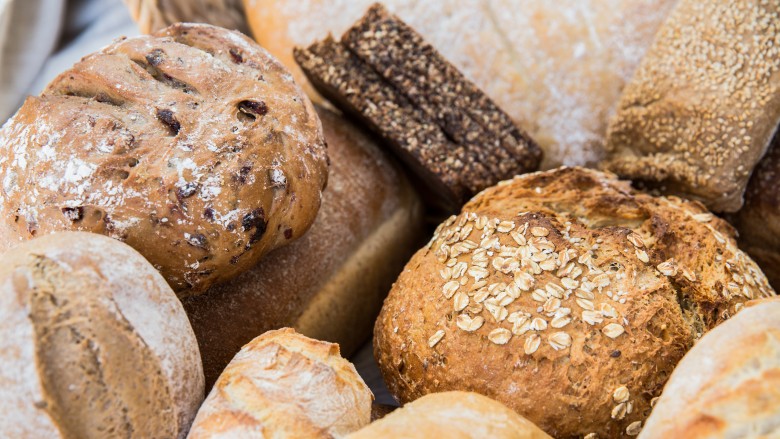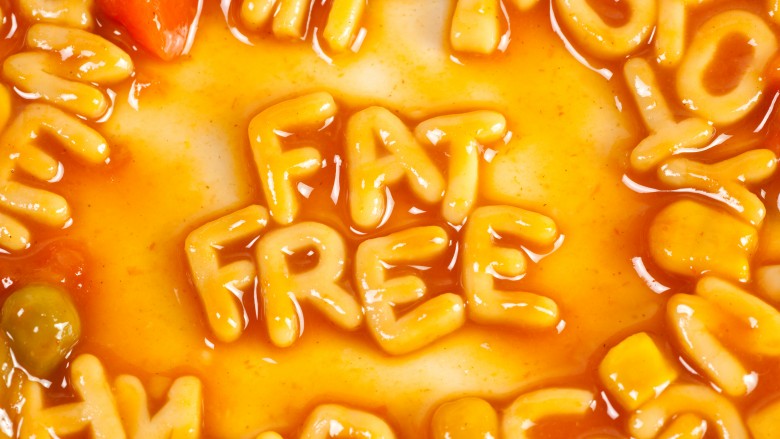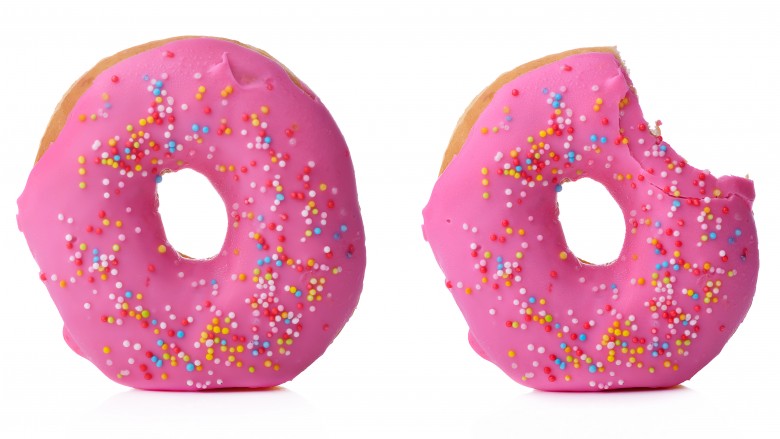9 Ways To Tell You're Addicted To Sugar
Let's face it: sugar is in practically everything. It graces nearly every aisle of the grocery store, from carb-heavy bread products to beverages to (of course) candy and cookies and even the produce section. It sneaks up on you in yogurt, smoothie mixes, seemingly-natural juices and pickles. So even if you're trying to cut back, whether for a specific health reason or just because you want to eat less of it, it can be really challenging to actually accomplish.
According to the World Health Organization (WHO), adults should limit their daily sugar intake to no more than 12 teaspoons of sugar per day. Many American adults eat far more sugar than they realize (it's in nearly everything, after all), but as Greatist learned when it published a story adding up the amount of sugar you truly eat in a day, your body pretty much treats added sugars and natural sugars the same exact way. So ultimately, the total number of sugars is really what you need to keep an eye on.
But what if you can't cut back on how much sugar you eat each day? As it turns out, according to a 2013 study published in Current Opinion Clinical Nutrition and Metabolic Care, sugar can actually trigger your neurological reward centers greater than that of cocaine. So while a full-fledged, official diagnosis of "sugar addiction" can be a controversial topic among experts, there is evidence that eating sugar encourages us to consume even more sugar.
Worried your killer sweet tooth may be more than just your nightly bowl of ice cream or handful of cookies? Keep an eye out for these 11 ways to assess whether you're actually addicted to sugar. But first, drop the spoon, and put the lid back on the cookie jar.
You're majorly craving carbs
I don't care what anybody says, carb cravings are definitely a thing. Carbohydrates break down in your body as sugars, so, as registered dietitian Cassie Bjork told Women's Health, cravings for carb-laden foods like pasta, pretzels or bread may actually signify a sugar craving and not a carbohydrate craving.
You're tired all day long
Fatigue can be caused by so many different things, you could get tired just trying to list them all. According to Self, eating too much sugar means you're probably not eating enough lean protein and fiber — both of which help keep your energy stores amply supplied throughout the day. Plus, you know those awful sugar crashes? You go from high energy levels after eating something sugary to bottomed out energy levels without it. So if you find yourself regularly searching for a sugary treat to boost your energy throughout the day, you may actually be too dependent on it.
You can't satisfy your sweet tooth
If you can't get enough sugar, no matter how much of it you eat, this is a clear sign that you might be addicted to it, according to Shape. Sweets, salty snacks and other processed foods are all designed to make you feel like you need to keep eating them. Not great if you're trying to stay away, and even worse if you're addicted. If you're eating enough sugar to give someone else a tooth ache, it could mean that you're addicted to it.
You keep reaching for fat-free products
Wait, what? What do fat-free products have to do with being addicted to sugar? Well, as Kristin Kirkpatrick, a registered dietitian and manager of wellness nutrition services at Cleveland Clinic Wellness Institute wrote in an article for Huffington Post, when companies remove fat from a product, they often pump those products full of sugar to replace the flavor loss caused by removing the fat. Ultimately, if you're addicted to sugar or just trying to cut back, sticking to full-fat products can actually be the better option, even if it seems counterintuitive at first.
Your mood gets better after you eat something sugary
Turns out, eating sweets really can perk up your mood. The bad news is, if your mood improves after a sweet snack, it could be a sign that you're addicted to sugar, according to Everyday Health. Stress and other forms of emotional eating can make this worse, so if you catch yourself reaching for a piece of candy to make yourself feel happier or calmer, consider trying another stress management technique to cut back on all the extra sugar.
Sweet foods don't taste all that sweet
When your taste buds are continuously overwhelmed with sugary sweetness, foods start to taste markedly less sweet than they used to. According to Self, constantly eating sugary foods builds up your taste buds' tolerance to sugar, meaning that foods just don't taste as sweet. This lessened ability to recognize sweet can hint that you might be addicted to sugar.
Your kitchen is full of treats
According to Psychology Today, one of the best ways to quit eating so much sugar is to keep treats out of the house. If your kitchen is stocked with every kind of sugary treat your little heart could desire, well, it could be a sign that you're eating far too much of it. Keeping treats out of the house means you have to put forth a lot more effort to fulfill your sugar craving than if you just had to take the short walk to the kitchen. Taking away the temptation altogether makes a difference.
You get headaches when you cut back
Just like the caffeine headaches you get when you skip your morning cup of coffee, cutting back on sugar can lead to headaches, mood swings and even anxiety, as registered dietitian Brittany Kohn told Health. While it may seem tempting to just keep up with your sugar habit to avoid the headaches and other fallout, any withdrawal-type symptoms could signify that you're more dependent on your constant sugar rush than you thought.
You're having memory issues
While most people have minor troubles remembering things from time to time, if you're experiencing notable memory issues, you may want to take inventory of how much sugar you're eating each day. According to Greatist, consuming too much sugar can reduce the number of proteins in your brain that help deal with memory as well as responsiveness. Additionally, eating more sugar over the course of your life may be linked to developing dementia or Alzheimer's disease in old age. Obviously, any memory issues serious enough to concern you could point to a scarier and more severe condition, and it is worth speaking to your doctor.
Cutting back on your sugar intake is a win-win
Though it can sometimes be difficult to say no to a sugary treat, monitoring how much of it you're really eating isn't necessarily a bad idea. In addition to lowering your risk of developing certain chronic diseases and conditions, cutting back on sugar overall will actually make those sweet indulgences taste even sweeter. Win-win.










